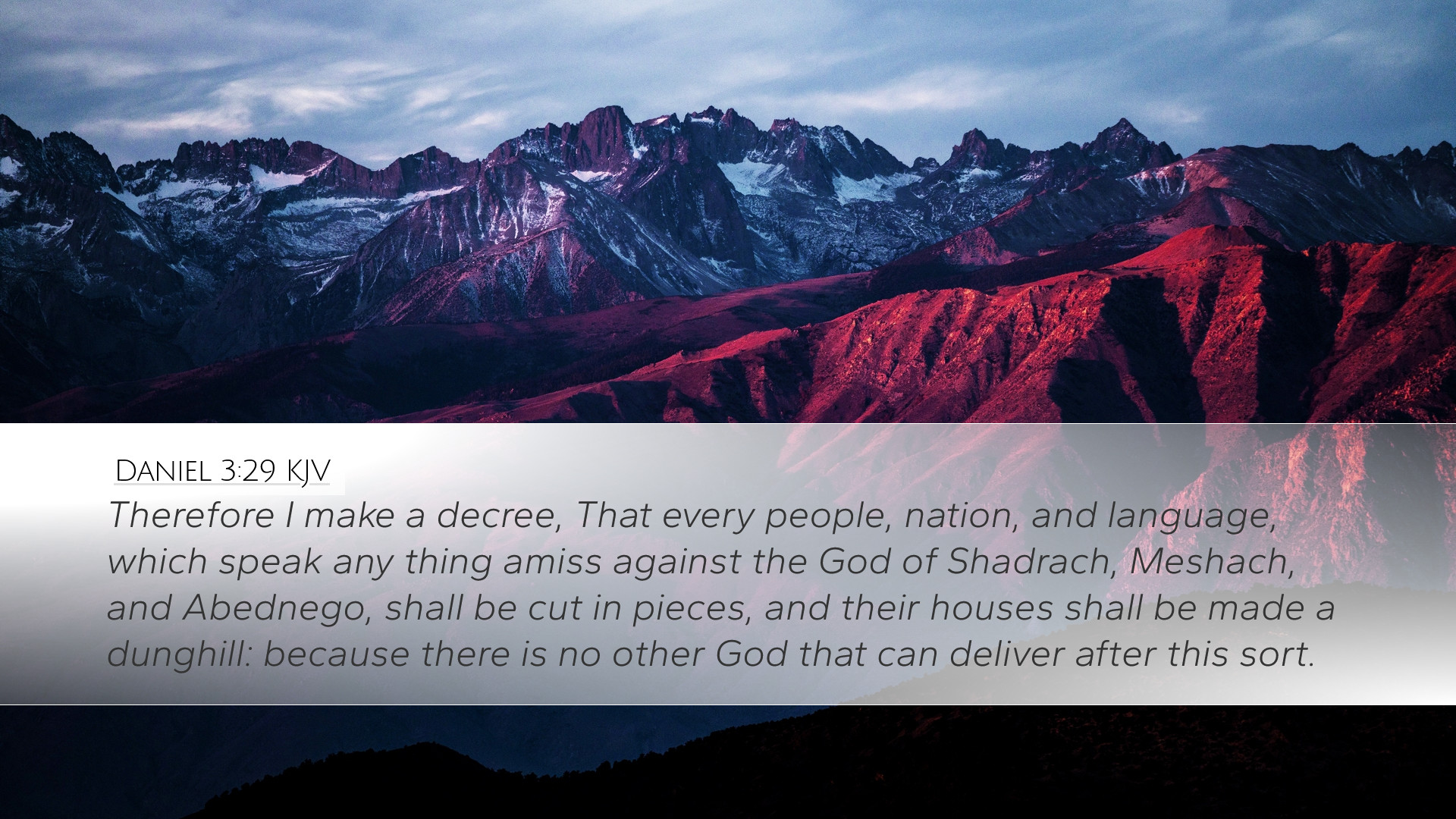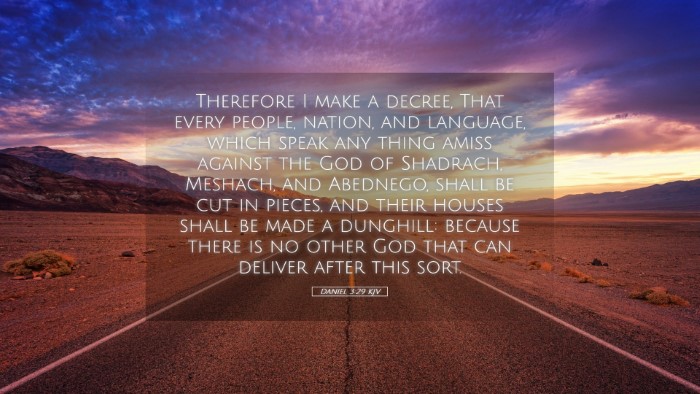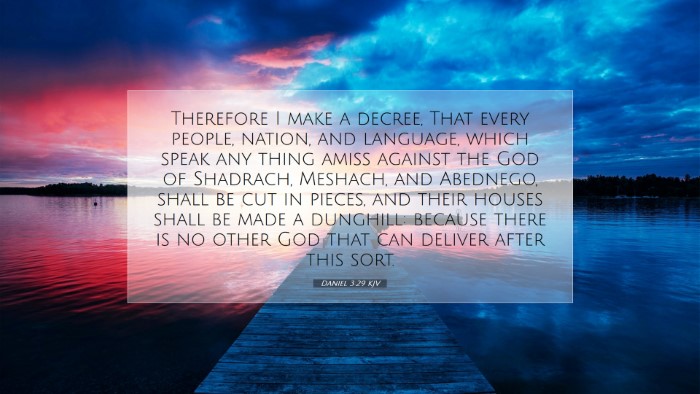Commentary on Daniel 3:29
Verse Text: "Therefore I make a decree, that every people, nation, and language which speak any thing amiss against the God of Shadrach, Meshach, and Abednego, shall be cut in pieces, and their houses shall be made a dunghill: because there is no other God that can deliver after this sort."
Introduction
The decree issued by Nebuchadnezzar reveals profound theological insights and underscores the sovereignty of God as witnessed through miraculous deliverance. Public domain commentaries, such as those by Matthew Henry, Albert Barnes, and Adam Clarke, illuminate the verse's implications for worship, idolatry, and divine authority.
The Context of the Decree
In the broader narrative, Daniel 3 recounts the story of the fiery furnace where Shadrach, Meshach, and Abednego defy King Nebuchadnezzar's command to worship an idol. Their faithfulness to God results in divine intervention when God delivers them unharmed from the flames.
Nebuchadnezzar's Transformation
Matthew Henry observes that the transformation of Nebuchadnezzar from a proud monarch to a humble believer in the one true God is pivotal. After witnessing the miraculous deliverance, he acknowledges God's power, leading him to issue a decree mandating reverence for the God of Israel.
The Énoncé of the Decree
Albert Barnes notes that the decree not only recognizes God’s authority but also serves as a warning against blasphemy. The severe penalties—being "cut in pieces" and having homes turned into "dunghills"—reflect Nebuchadnezzar's attempt to consolidate power over religious practices among his subjects.
Theological Implications
This verse brings forth several theological themes pertinent to pastors, students, and scholars:
- The Exclusivity of God: The decree emphasizes the uniqueness of God as the only one capable of delivering from dire circumstances.
- Consequences of Idolatry: Idolatry can lead to severe repercussions, as Nebuchadnezzar sees in those who oppose the true God.
- The Role of Government: The passage illustrates the intersection of faith and governance, where rulers may use their authority to shape spiritual norms.
Worship and Blasphemy
Adam Clarke focuses on the significance of worship in this context. He suggests that the decree embodies the idea that worship must be directed solely towards the true God. The king’s response indicates a newfound reverence for God’s uniqueness and power.
Defining Blasphemy
Clarke further emphasizes that the term "blasphemy" is critical in this verse. Speaking against the God of Shadrach, Meshach, and Abednego represents a direct challenge to God's sovereignty and power, prompting the king's severe reaction.
Conclusion
Daniel 3:29 plays a crucial role in understanding the nature of divine deliverance and the proper attitude towards God. The commentaries of Henry, Barnes, and Clarke provide essential insights that can guide believers in their worship and understanding of God's authority. The severe tone of the decree serves as a reminder of the seriousness with which we should treat our relationship with God and the dire consequences of turning away from Him.
Practical Applications
For contemporary believers, there are several takeaways from this passage:
- Faithfulness in Adversity: Like Shadrach, Meshach, and Abednego, believers are encouraged to remain steadfast in their faith even when faced with threats or persecution.
- Recognizing God’s Power: It is essential to acknowledge God’s capability to save and the importance of validating His power through public worship.
- Confronting Idolatry: Believers are called to identify and confront modern forms of idolatry that may arise in their lives and communities.


